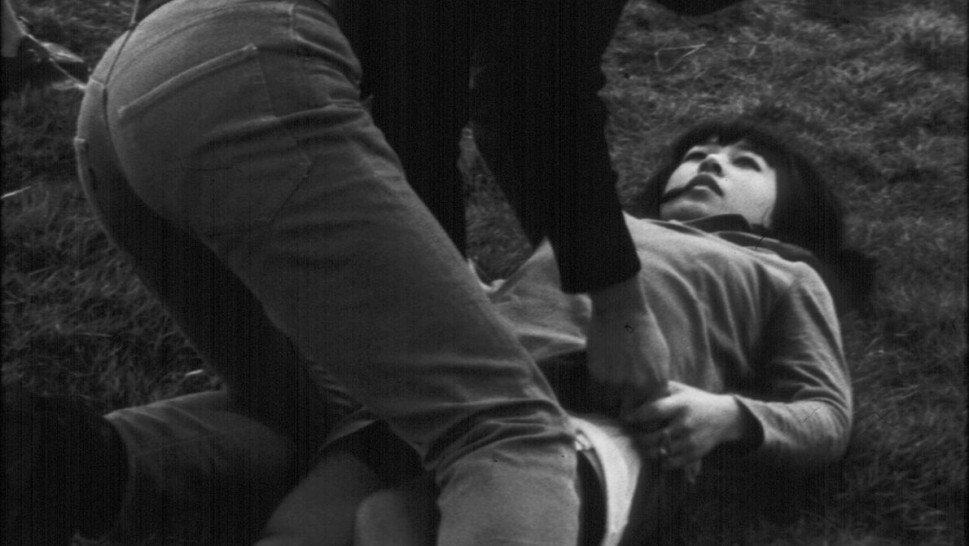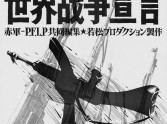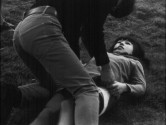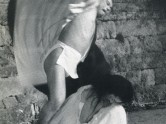
Film = Activism. The Revolutionary Underground Cinema of Masao Adachi
Instead of replacing the camera with the rifle, why not have one in each hand?
Masao Adachi (b. 1939) is a true revolutionary artist, a filmmaker whose unshakable political beliefs have shaped his vision of cinema as an intense engagement with its audience and with its time. A recognized and widely published theorist, a profound thinker about cinematic form Adachi realizes his ideas through his films, inventing avant-garde techniques to shatter cinematic conventions and challenge viewers to understand the complex, often incendiary, issues grappled with in his work: sexuality, politics and the always forestalled but ever urgent promise of revolution.
Adachi's films and career testify to the impressive vitality of the underground film movement as a little recognized shaping force of postwar Japanese cinema. Indeed, formative to Adachi's cinematic imagination was his membership in the late 1950s in the radical student film clubs so instrumental in the student protest movement that crested and ultimately splintered with the massive strikes against the controversial ratification of the Japan-US Security Treaty in 1960. Working as part of a collective, Adachi realized his seminal early films, Bowl and Closed Vagina which are equally legible as experimental films and allegories about political activism. The notion of a non-hierarchical collective, with the director just one voice among many, would remain a core principal of Adachi's cinema. The complex layering of meaning in Adachi's student film continued in his work with the late Koji Wakamastu (1936-2012), first writing and eventually directing a series of politically outraged "pink films" whose combination of perverse sexuality and radical politics were like nothing seen before on Japanese screens. Demented and visionary, Adachi-scripted, Wakamatsu-directed films such as The Embryo Hunts in Secret and Sex Jack are recognized today as pioneering dark visions of another, secret side of the post-war Japanese miracle, a dark psycho-sexual nest of repression, trauma and guilt. Adachi's search for a radical cinema able to raise awareness of the invisible net of political hegemony gave way to his extraordinary AKA: Serial Killer, a pseudo-documentary about a nineteen-year-old murderer that gave form to the so-called "landscape theory" Adachi pioneered, offering a series of coldly objective images of landscapes and cityscapes that the young killer may have seen, environments that shaped his warped, troubled perspective.
In pursuing his belief in the cinema as an instrument and even a weapon in the struggle against the capitalist-imperialist juggernaut transforming Japan and so much of the post-WWII world, Adachi went further than just about any artist in Japan. Following their controversial and outspoken appearance at the 1971 Cannes Film Festival, Adachi and Wakamatsu traveled to Lebanon to make a film in support of the Palestine resistance. The result was Red Army/PLFP: Declaration of World War a newsreel-style propaganda film whose fiery call to arms Adachi himself would follow in 1974 when he abruptly abandoned filmmaking and returned to Lebanon to join the Japanese United Army. For the next twenty-eight years Adachi withdrew from the film scene he had so electrified, his activities remaining largely unknown until his arrest in Lebanon on passport violations and his extradition to Japan where he served a brief prison arrest and where he remains today in a kind of limbo, forbidden by the government to leave the country. Under the watchful eye of the authorities, Adachi's return to cinema revealed none of his powers diminished, his revolutionary beliefs still strong, although tempered now with a distinct melancholy. This quality is apparent in his impressive first feature film in over thirty years, Prisoner/Assassin, an abstracted and partially autobiographical meditation on imprisonment, exile and the consequences of sacrifice for a higher cause. Affirming Adachi's status as one of the masters of political counter-cinema, his latest work testifies to his unfailing conviction and vision of film as an artistic weapon for awakening its audience to the revolutionary struggle for truth. — Haden Guest















